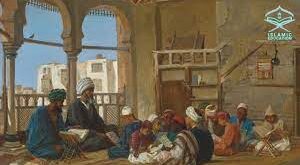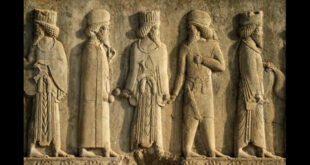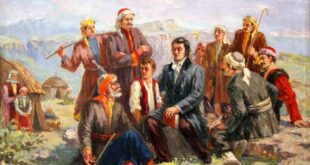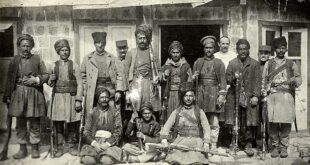Kurd, member of an ethnic and linguistic group living in the Taurus Mountains of southeastern Anatolia, the Zagros Mountainsof western Iran, portions of northern Iraq, northeastern Syria, and western Armenia, and other adjacent areas. Most of the Kurds live in contiguous areas of Iran, Iraq, and Turkey—a somewhat loosely defined geographic region generally referred to as Kurdistan (“Land of the Kurds”). The name has different connotations in Iran and Iraq, which officially recognize internal entities by this name: Iran’s western province of Kordestān and Iraq’s Kurdish autonomous region. A sizable noncontiguous Kurdish population also exists in the Khorāsān region, situated in Iran’s northeast.
The Kurdish language and traditional way of life
The Kurdish language is a West Iranian language related to Persian and Pashto. The Kurds are thought to number from 25 million to 30 million, including communities in Armenia, Georgia, Kazakhstan, Lebanon, Syria, and Europe, but sources for this information differ widely because of differing criteria of ethnicity, religion, and language; statistics may also be manipulated for political purposes.
The traditional Kurdish way of life was nomadic, revolving around sheep and goat herding throughout the Mesopotamian plains and the highlands of Turkey and Iran. Most Kurds practiced only marginal agriculture. The enforcement of national boundaries beginning after World War I (1914–18) impeded the seasonal migrations of the flocks, forcing most of the Kurds to abandon their traditional ways for village life and settled farming; others entered nontraditional employment.
History
The prehistory of the Kurds is poorly known, but their ancestors seem to have inhabited the same upland region for millennia. The records of the early empires of Mesopotamia contain frequent references to mountain tribes with names resembling “Kurd.” The Kardouchoi whom the Greek historian Xenophon speaks of in Anabasis (they attacked the “Ten Thousand” near modern Zākhū, Iraq, in 401 BCE) may have been Kurds, but some scholars dispute this claim. The name Kurd can be dated with certainty to the time of the tribes’ conversion to Islam in the 7th century CE. Most Kurds are Sunni Muslims, and among them are many who practice Sufism and other mystical sects. Although several historical dynasties have been led by Kurdish rulers, such as the Ḥasanwayhid dynasty, the ʿAnnazid dynasty, and, most famously, the Ayyubid dynasty, the Kurds have never achieved nation-state status in the modern era.
Social organization
The principal unit in traditional Kurdish society was the tribe, typically led by a sheikh or an aga, whose rule was firm. Tribal identification and the sheikh’s authority are still felt, though to a lesser degree, in the large urban areas. Detribalization proceeded intermittently as Kurdish culture became urbanized and was nominally assimilated into several nations.
In traditional Kurdish society, marriage was generally endogamous. In nonurban areas, practices such as arranged marriage and child marriage are common. Households typically consist of father, mother, and children. Polygamy, permitted by Islamic law, is sometimes practiced, although in Turkey it is forbidden by civil law. The strength of the extended family’s ties to the tribe varies with the way of life. Along with Kurdish men, Kurdish women—who traditionally have been more active in public life than Turkish, Arab, and Iranian women, especially in prerevolutionary Iran—have taken advantage of urban educational and employment opportunities.
Kurdish nationalism came about through the conjunction of a variety of factors, including the British introduction of the concept of private property, the partition of regions of Kurdish settlement by modern neighbouring states, and the influence of British, U.S., and Soviet interests in the Persian Gulf region. These factors and others combined with the flowering of a nationalist movement among a very small minority of urban, intellectualKurds.
The first Kurdish newspaper appeared in 1897 and was published at intervals until 1902. It was revived at Istanbul in 1908 (when the first Kurdish political club, with an affiliatedcultural society, was also founded) and again in Cairo during World War I. The Treaty of Sèvres, drawn up in 1920, provided for an autonomous Kurdistan but was never ratified; the Treaty of Lausanne (1923), which replaced the Treaty of Sèvres, made no mention of Kurdistan or of the Kurds. Thus the opportunity to unify the Kurds in a nation of their own was lost. Indeed, Kurdistan after the war was more fragmented than before, and various separatist movements arose among Kurdish groups.
 History of Kurdistan
History of Kurdistan



